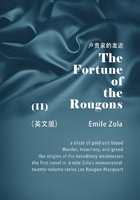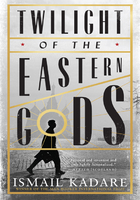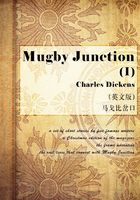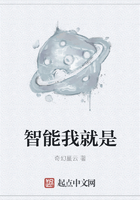Sixteen years before this time, all Hollingford had been disturbed to its foundations by the intelligence that Mr. Hall, the skilful doctor, who had attended them all their days, was going to take a partner. It was no use reasoning to them on the subject; so Mr Browning the vicar, Mr. Sheepshanks (Lord Cumnor's agent), and Mr Hall himself, the masculine reasoners of the little society, left off the attempt, feeling that the Che sara sara would prove more silencing to the murmurs than many arguments. Mr. Hall had told his faithful patients that, even with the strongest spectacles, his sight was not to be depended upon; and they might have found out for themselves that his hearing was very defective, although, on this point, he obstinately adhered to his own opinion, and was frequently heard to regret the carelessness of people's communication nowadays, 'like writing on blotting-paper, all the words running into each other,' he would say. And more than once Mr. Hall had had attacks of a suspicious nature,— 'rheumatism' he used to call them; but he prescribed for himself as if they had been gout,—which had prevented his immediate attention to imperative summonses. But, blind and deaf, and rheumatic as he might be, he was still Mr. Hall, the doctor who could heal all their ailments—unless they died meanwhile—and he had no right to speak of growing old, and taking a partner.
He went very steadily to work all the same; advertising in medical journals, reading testimonials, sifting character and qualifications; and just when the elderly maiden ladies of Hollingford thought that they had convinced their contemporary that he was as young as ever, he startled them by bringing his new partner, Mr. Gibson, to call upon them, and began 'slyly,' as these ladies said, to introduce him into practice. And 'who was this Mr Gibson?' they asked, and echo might answer the question, if she liked, for no one else did. No one ever in all his life knew anything more of his antecedents than the Hollingford people might have found out the first day they saw him: that he was tall, grave, rather handsome than otherwise; thin enough to be called 'a very genteel figure,' in those days, before muscular Christianity had come into vogue; speaking with a slight Scotch accent; and, as one good lady observed, 'so very trite in his conversation,' by which she meant sarcastic. As to his birth, parentage, and education,—the favourite conjecture of Hollingford society was, that he was the illegitimate son of a Scotch duke, by a Frenchwoman; and the grounds for this conjecture were these:—He spoke with a Scotch accent; therefore, he must be Scotch. He had a very genteel appearance, an elegant figure, and was apt—so his ill-wishers said—to give himself airs. Therefore, his father must have been some person of quality; and, that granted, nothing was easier than to run this supposition up all the notes of the scale of the peerage,—baronet, baron, viscount, earl, marquis, duke. Higher they dared not go, though one old lady, acquainted with English history, hazarded the remark, that 'she believed that one or two of the Stuarts—hem—had not always been,— ahem—quite correct in their—conduct; and she fancied such—ahem— things ran in families.' But, in popular opinion, Mr. Gibson's father always remained a duke; nothing more.
Then his mother must have been a Frenchwoman, because his hair was so black; and he was so sallow; and because he had been in Paris. All this might be true, or might not; nobody ever knew, or found out anything more about him than what Mr. Hall told them, namely, that his professional qualifications were as high as his moral character, and that both were far above the average, as Mr. Hall had taken pains to ascertain before introducing him to his patients. The popularity of this world is as transient as its glory, as Mr. Hall found out before the first year of his partnership was over. He had plenty of leisure left to him now to nurse his gout and cherish his eyesight. The younger doctor had carried the day; nearly every one sent for Mr Gibson now; even at the great houses—even at the Towers, that greatest of all, where Mr. Hall had introduced his new partner with fear and trembling, with untold anxiety as to his behaviour, and the impression he might make on my lord the Earl, and MY lady the Countess. Mr. Gibson was received at the end of a twelvemonth with as much welcome respect for his professional skill as Mr. Hall himself had ever been. Nay—and this was a little too much for even the kind old doctor's good temper—Mr. Gibson had even been invited once to dinner at the Towers, to dine with the great Sir Astley, the head of the profession! To be sure, Mr. Hall had been asked as well; but he was laid up just then with his gout, since he had had a partner the rheumatism had been allowed to develop itself, and he had not been able to go. Poor Mr. Hall never quite got over this mortification; after it he allowed himself to become dim of sight and hard of hearing, and kept pretty closely to the house during the two winters that remained of his life. He sent for an orphan grand- niece to keep him company in his old age; he, the woman-contemning old bachelor, became thankful for the cheerful presence of the pretty, bonny Mary Preston, who was good and sensible, and nothing more. She formed a close friendship with the daughters of the vicar, Mr. Browning, and Mr. Gibson found time to become very intimate with all three. Hollingford speculated much on which young lady would become Mrs Gibson, and was rather sorry when the talk about possibilities, and the gossip about probabilities with regard to the handsome young surgeon's marriage, ended in the most natural manner in the world, by his marrying his predecessor's niece. The two Miss Brownings showed no signs of going into a consumption on the occasion, although their looks and manners were carefully watched. On the contrary, they were rather boisterously merry at the wedding, and poor Mrs. Gibson it was that died of consumption, four or five years after her marriage—three years after the death of her great-uncle, and when her only child, Molly, was just three years old.
Mr. Gibson did not speak much about the grief at the loss of his wife, which it is to be supposed that he felt. Indeed, he avoided all demonstration of sympathy, and got up hastily and left the room when Miss Phoebe Browning first saw him after his loss, and burst into an uncontrollable flood of tears, which threatened to end in hysterics. Miss Browning afterwards said she never could forgive him for his hard- heartedness on that occasion; but a fortnight afterwards she came to very high words with old Mrs. Goodenough, for gasping out her doubts whether Mr. Gibson was a man of deep feeling; judging by the narrowness of his crape hat-band, which ought to have covered his hat, whereas there was at least three inches of beaver to be seen. And, in spite of it all, Miss Browning and Miss Phoebe considered themselves as Mr. Gibson's most intimate friends, in right of their regard for his dead wife, and would fain have taken a quasi-motherly interest in his little girl, had she not been guarded by a watchful dragon in the shape of Betty, her nurse, who was jealous of any interference between her and her charge; and especially resentful and disagreeable towards all those ladies who, by suitable age, rank, or propinquity, she thought capable of 'casting sheep's eyes at master.'
Several years before the opening of this story, Mr. Gibson's position seemed settled for life, both socially and professionally. He was a widower, and likely to remain so; his domestic affections were centred on little Molly, but even to her, in their most private moments, he did not give way to much expression of his feelings; his most caressing appellation for her was 'Goosey,' and he took a pleasure in bewildering her infant mind with his badinage. He had rather a contempt for demonstrative people, arising from his medical insight into the consequences to health of uncontrolled feeling. He deceived himself into believing that still his reason was lord of all, because he had never fallen into the habit of expression on any other than purely intellectual subjects. Molly, however, had her own intuitions to guide her. Though her papa laughed at her, quizzed her, joked at her, in a way which the Miss Brownings called 'really cruel' to each other when they were quite alone, Molly took her little griefs and pleasures, and poured them into her papa's ears, sooner even than into Betty's, that kind-hearted termagant. The child grew to understand her father well, and the two had the most delightful intercourse together—half banter, half seriousness, but altogether confidential friendship. Mr. Gibson kept three servants; Betty, a cook, and a girl who was supposed to be housemaid, but who was under both the elder two, and had a pretty life of it in consequence. Three servants would not have been required if it had not been Mr. Gibson's habit, as it had been Mr. Hall's before him, to take two 'pupils,' as they were called in the genteel language of Hollingford, 'apprentices,' as they were in fact—being bound by indentures, and paying a handsome premium' to learn their business. They lived in the house, and occupied an uncomfortable, ambiguous, or, as Miss Browning called it with some truth, 'amphibious' position. They had their meals with Mr. Gibson and Molly, and were felt to be terribly in the way; Mr. Gibson not being a man who could make conversation, and hating the duty of talking under restraint. Yet something within him made him wince, as if his duties were not rightly performed, when, as the cloth was drawn, the two awkward lads rose up with joyful alacrity, gave him a nod, which was to be interpreted as a bow, knocked against each other in their endeavours to get out of the dining-room quickly; and then might be heard dashing along a passage which led to the surgery, choking with half-suppressed laughter. Yet the annoyance he felt at this dull sense of imperfectly fulfilled duties only made his sarcasms on their inefficiency, or stupidity, or ill manners, more bitter than before.
Beyond direct professional instruction, he did not know what to do with the succession of pairs of young men, whose mission seemed to be to plague their master consciously, and to plague him unconsciously. Once or twice Mr. Gibson had declined taking a fresh pupil, in the hopes of shaking himself free from the incubus, but his reputation as a clever surgeon had spread so rapidly that fees which he had thought prohibitory, were willingly paid, in order that the young man might make a start in life, with the prestige of having been a pupil of Gibson of Hollingford. But as Molly grew to be a little girl instead of a child, when she was about eight years old, her father perceived the awkwardness of her having her breakfasts and dinners so often alone with the pupils, without his uncertain presence. To do away with this evil, more than for the actual instruction she could give, he engaged a respectable woman, the daughter of a shopkeeper in the town, who had left a destitute family, to come every morning before breakfast, and to stay with Molly till he came home at night; or, if he was detained, until the child's bedtime.
'Now, Miss Eyre,' said he, summing up his instructions the day before she entered upon her office, 'remember this: you are to make good tea for the young men, and see that they have their meals comfortably, and—you are five-and-thirty, I think you said?—try and make them talk,—rationally, I am afraid is beyond your or anybody's power; but make them talk without stammering or giggling. Don't teach Molly too much: she must sew, and read, and write, and do her sums; but I want to keep her a child, and if I find more learning desirable for her, I'll see about giving it to her myself. After all, I am not sure that reading or writing is necessary. Many a good woman gets married with only a cross instead of her name; it's rather a diluting of mother-wit, to my fancy; but, however we must yield to the prejudices of society, Miss Eyre, and so you may teach the child to read.'
Miss Eyre listened in silence, perplexed but determined to be obedient to the directions of the doctor, whose kindness she and her family had good cause to know. She made strong tea; she helped the young men liberally in Mr. Gibson's absence, as well as in his presence, and she found the way to unloosen their tongues, whenever their master was away, by talking to them on trivial subjects in her pleasant homely way. She taught Molly to read and write, but tried honestly to keep her back in every other branch of education. It was only by fighting and struggling hard, that bit by bit Molly persuaded her father to let her have French and drawing lessons. He was always afraid of her becoming too much educated, though he need not have been alarmed; the masters who visited such small country towns as Hollingford forty years ago, were no such great proficients in their arts. Once a week she joined a dancing class in the assembly-room at the principal inn in the town: the 'George;' and, being daunted by her father in every intellectual attempt, she read every book that came in her way, almost with as much delight as if it had been forbidden. For his station in life, Mr. Gibson had an unusually good library; the medical portion of it was inaccessible to Molly, being kept in the surgery, but every other book she had either read, or tried to read. Her summer place of study was that seat in the cherry-tree, where she got the green stains on her frock, that have already been mentioned as likely to wear Betty's life out. In spite of this 'hidden worm i' th' bud,' Betty was to all appearance strong, alert, and flourishing. She was the one crook in Miss Eyre's lot, who was otherwise so happy in having met with a suitable well-paid employment just when she needed it most. But Betty, though agreeing in theory with her master when he told her of the necessity of having a governess for his little daughter, was vehemently opposed to any division of her authority and influence over the child who had been her charge, her plague, and her delight ever since Mrs. Gibson's death. She took up her position as censor of all Miss Eyre's sayings and doings from the very first, and did not for a moment condescend to conceal her disapprobation. In her heart, she could not help respecting the patience and painstaking of the good lady,—for a 'lady' Miss Eyre was in the best sense of the word, though in Hollingford she only took rank as a shopkeeper's daughter. Yet Betty buzzed about her with the teasing pertinacity of a gnat, always ready to find fault, if not to bite. Miss Eyre's only defence came from the quarter whence it might least have been expected—from her pupil; on whose fancied behalf, as an oppressed little personage, Betty always based her attacks. But very early in the day Molly perceived their injustice, and soon afterwards she began to respect Miss Eyre for her silent endurance of what evidently gave her far more pain than Betty imagined. Mr. Gibson had been a friend in need to her family, so Miss Eyre restrained her complaints, sooner than annoy him. And she had her reward. Betty would offer Molly all sorts of small temptations to neglect Miss Eyre's wishes; Molly steadily resisted, and plodded away at her task of sewing or her difficult sum. Betty made cumbrous jokes at Miss Eyre's expense. Molly looked up with the utmost gravity, as if requesting the explanation of an unintelligible speech; and there is nothing so quenching to a wag as to be asked to translate his jest into plain matter-of-fact English, and to show wherein the point lies. Occasionally Betty lost her temper entirely, and spoke impertinently to Miss Eyre; but when this had been done in Molly's presence, the girl flew out into such a violent passion of words in defence of her silent trembling governess, that even Betty herself was daunted, though she chose to take the child's anger as a good joke, and tried to persuade Miss Eyre herself to join in her amusement.
'Bless the child! one would think I was a hungry pussy-cat, and she a hen-sparrow, with her wings all fluttering, and her little eyes aflame, and her beak ready to peck me just because I happened to look near her nest. Nay, child! if thou lik'st to be stifled in a nasty close room, learning things as is of no earthly good when they is learnt, instead o' riding on Job Donkin's hay-cart, it's thy look-out, not mine. She's a little vixen, isn't she?' smiling at Miss Eyre, as she finished her speech. But the poor governess saw no humour in the affair; the comparison of Molly to a hen-sparrow was lost upon her. She was sensitive and conscientious, and knew, from home experience, the evils of an ungovernable temper. So she began to reprove Molly for giving way to her passion, and the child thought it hard to be blamed for what she considered her just anger against Betty. But, after all, these were the small grievances of a very happy childhood.















